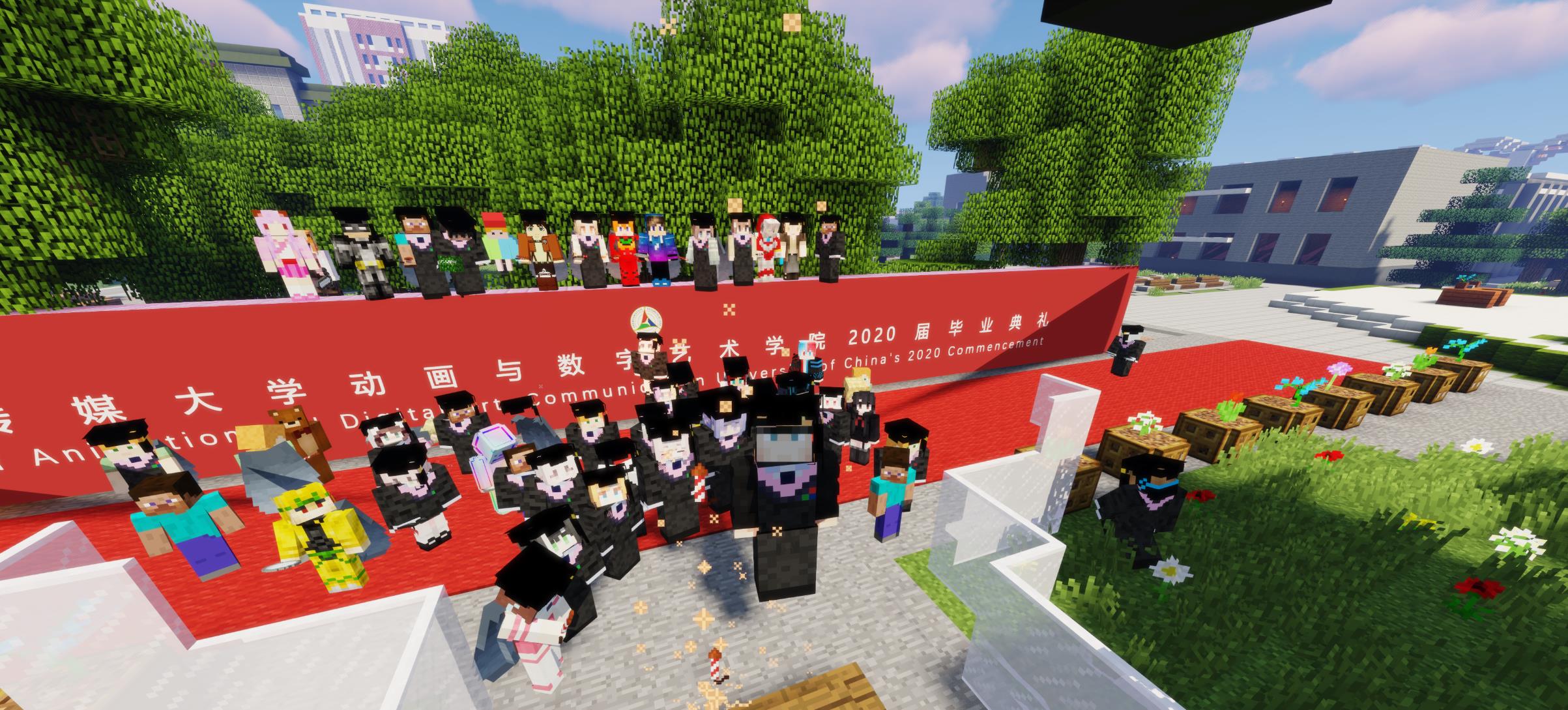Online game settings adopted for cloud graduation ceremony
- By Wu Jin
 0 Comment(s)
0 Comment(s) Print
Print E-mail China.org.cn, July 6, 2020
E-mail China.org.cn, July 6, 2020

When reminded by her student at the last second that she hadn't put her academic dress on before starting her speech, Sun Guoyu swiftly clicked the right key of her mouse and appeared in the gown that the student had left for her in a recent virtual-reality graduation ceremony.
Hosted by the School of Animation and Digital Art at the Communication University of China (CUC) in Beijing, the ceremony was propped up by the setting of online game Minecraft that mimicked buildings and blocks of the CUC's campus.
Reminiscent of the university days over the past four years, the designers enabled students and faculty members to enjoy a hilarious interaction at the digital platform before the conclusion of campus life.
"Although I felt nervous, the ceremony was appealing to me," recalled Sun, the deputy professor of the school. "I didn't care where I was as long as we were able to rendezvous with our students, regardless of whether or not it was an online program."
In China, because of the COVID-19 epidemic, most on-site commencement ceremonies have been canceled and replaced by online gatherings. Unlike the usual stereotype of celebrations with group photoshoots, keynote speeches, cap tossing and tassel-turning ceremonies, this year's graduation season is teeming with creative ideas and unconventional acts.
The CUC's artificial commencement started from the symbolic metro-line station, a well-known vermillion landmark near the university's main entrance. The undergraduates and their teachers were all supposed to get off at the artificial station before joining the ceremony.
"It is eventually my turn to speak out," Sun said, making her opening remark in a self-mocking tone. "I have been repeatedly attacked by you (in this cyberspace) since I arrived at the subway station."
Her address made the students even more excited as many of them surrounded her on the virtual stage and some started to toss snowballs.
"In normal times, it is a tradition for students of the CUC to throw folded paper airplanes at speakers," Sun explained.
According to Wang Zuo, a graduate and the chief designer of the virtual commencement, CUC students have always been disciplined and respectful to speakers, but the artificial ceremony is different.
"It was a commencement, but this ceremony was celebrated as a digital game," Wang explained. "For us, this was an intriguing effort and a meaningful creation, which made the teachers feel anything but offended."
Over the past few weeks, Wang and his teammates have been dedicated to designing the school replica with numerous snapshots taken by their teachers who remained in the school during the pandemic.
The foray kept them working on game settings — especially the calculation of distances between different buildings and areas — day and night. Throughout the process, any errors, no matter how minor they were, could have ruined the whole thing.
According to Wang, one day, when the program was almost completed, a road on the map was shown to be twisted, and it took them an entire night to figure out the miscalculation.
"Since we are all staying at home during the epidemic, the virtual reality program was expected to bring us back to our university days so that our regret of not being able to return to campus upon graduation can be greatly alleviated," Wang said.






Go to Forum >>0 Comment(s)